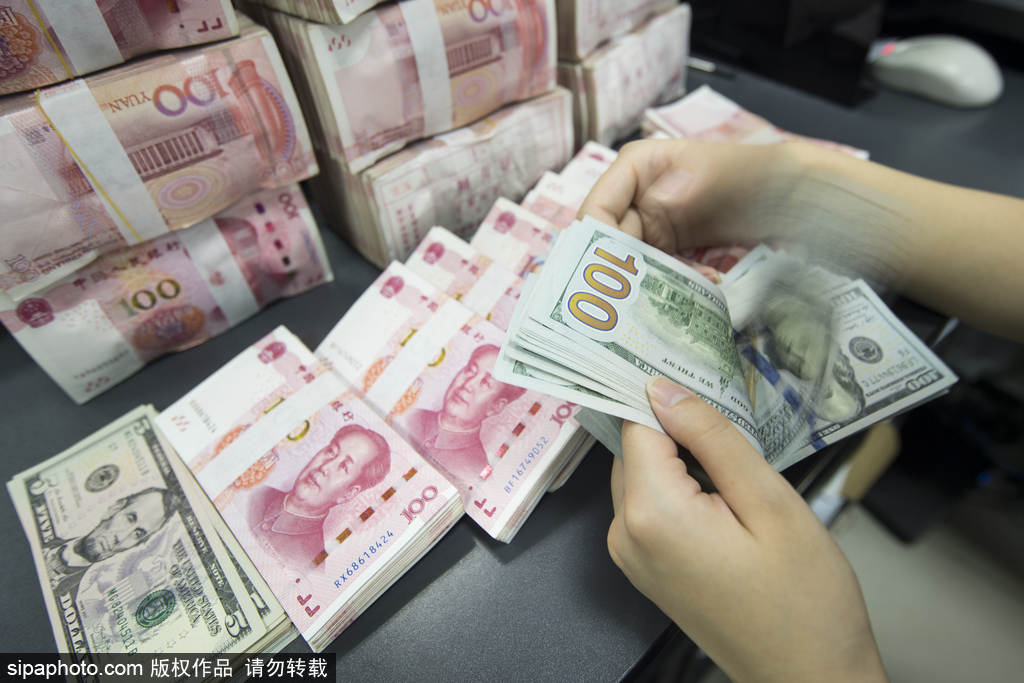Forex performance seen staying relatively stable


China's foreign exchange market is expected to maintain a relatively stable performance as the economy remains on an uptrend while the US dollar's strength may not be sustainable, the head of the country's top foreign exchange regulator said on Thursday.
Pan Gongsheng, head of the State Administration of Foreign Exchange, said fluctuations in the renminbi exchange rate since mid-April were mainly attributable to a stronger dollar and a "not yet solid "foundation of China's economic recovery.
"But the operation of China's foreign exchange market has remained generally stable, with relatively stable exchange rate expectations and cross-border capital flows," said Pan, who is also deputy governor of the People's Bank of China, the country's central bank.
"Looking ahead, China's economy, in general, will remain on a stable, upward track, whereas some market institutions predict that the US economy may face a mild recession. Meanwhile, as the US Federal Reserve is close to the end of its interest rate hikes, it is unlikely that the dollar will continuously strengthen," Pan said.
These factors will help the country's foreign exchange market maintain its stability, Pan said while addressing the 14th Lujiazui Forum 2023, adding that renminbi-denominated assets provide competitive real interest rates and a good means of value preservation.
China's real interest rate — measured by the difference between the yield of China's two-year government bonds and the growth of the core consumer price index — stands at roughly at 1.7 percent, on par with the United States and far higher than Germany and Japan, he added.
Pan's remarks came after the central parity rate of the onshore renminbi against the dollar had weakened by about 3.7 percent since April to 7.1280 on Thursday, breaching the 7-per-dollar level in May.
Over the same period, the US dollar Index, which gauges the greenback's value relative to a basket of currencies, rose by 1.3 percent to about 103.94 on Thursday, according to market tracker Wind Info.
Ye Yindan, a researcher at the Bank of China Research Institute, said the depreciation pressure on the renminbi will gradually ease, with the yuan likely to appreciate against the greenback in the second half of the year.
"The policy signal of (maintaining foreign exchange market stability) is clear. There are still plenty of policy options in reserve," Ye said, adding that regulators are expected to correct pro-cyclical and one-way market behaviors when necessary.
Echoing Pan's view, Ye said a weakening US economy and the fading impact of the Fed's rate hikes will weigh on the dollar and the state of China's economic recovery may gain a firmer footing.
Seen as the latest effort to encourage economic recovery, China's large State-owned banks cut the interest rates of demand deposits by 5 basis points to 0.2 percent while cutting the rates of two-year, three-year and five-year time deposit rates by 10 or 15 basis points.
Experts said the move will help stabilize the profit margin of banks and potentially lead to lower loan interest rates, therefore encouraging more investment and consumption. Yet, it also raised discussions of whether easing interest rates will widen the US-China interest rate difference, stimulate capital outflows and put pressure on the renminbi.
"It should be noted that exchange rates mainly hinge on economic fundamentals," said Lou Feipeng, a researcher at the Postal Savings Bank of China.
"Lowering deposit rates can help reduce banks' liability costs, enhance their ability to support the real economy and promote a decrease in financing costs for the real economy. This, in turn, can contribute to a more sustained economic recovery and provide support for the renminbi exchange rate," Lou said.
He added that the possibility for reductions in the loan prime rates, China's benchmark lending rates, has increased thanks to the deposit rate cuts.




































